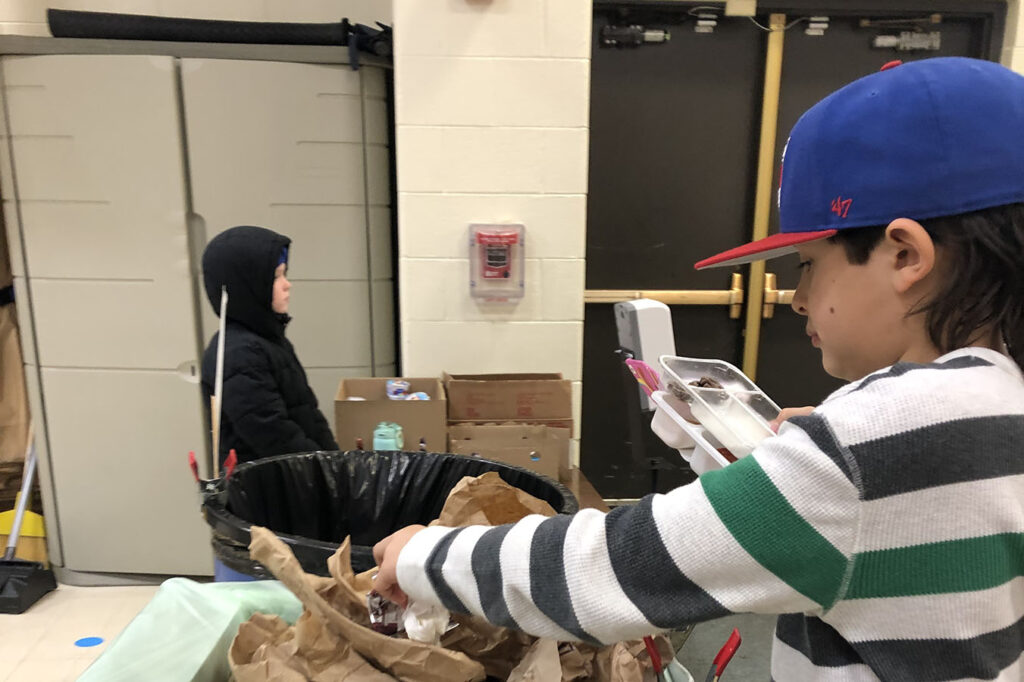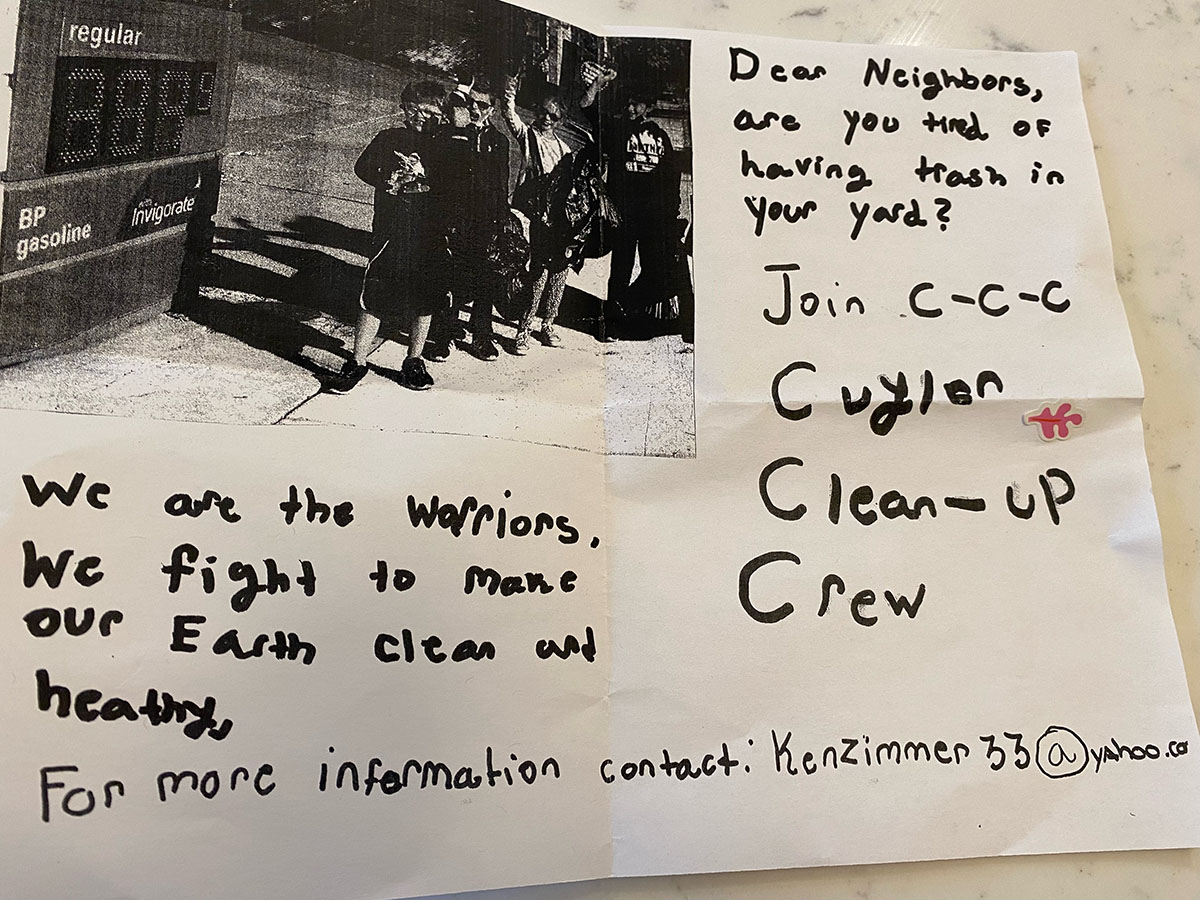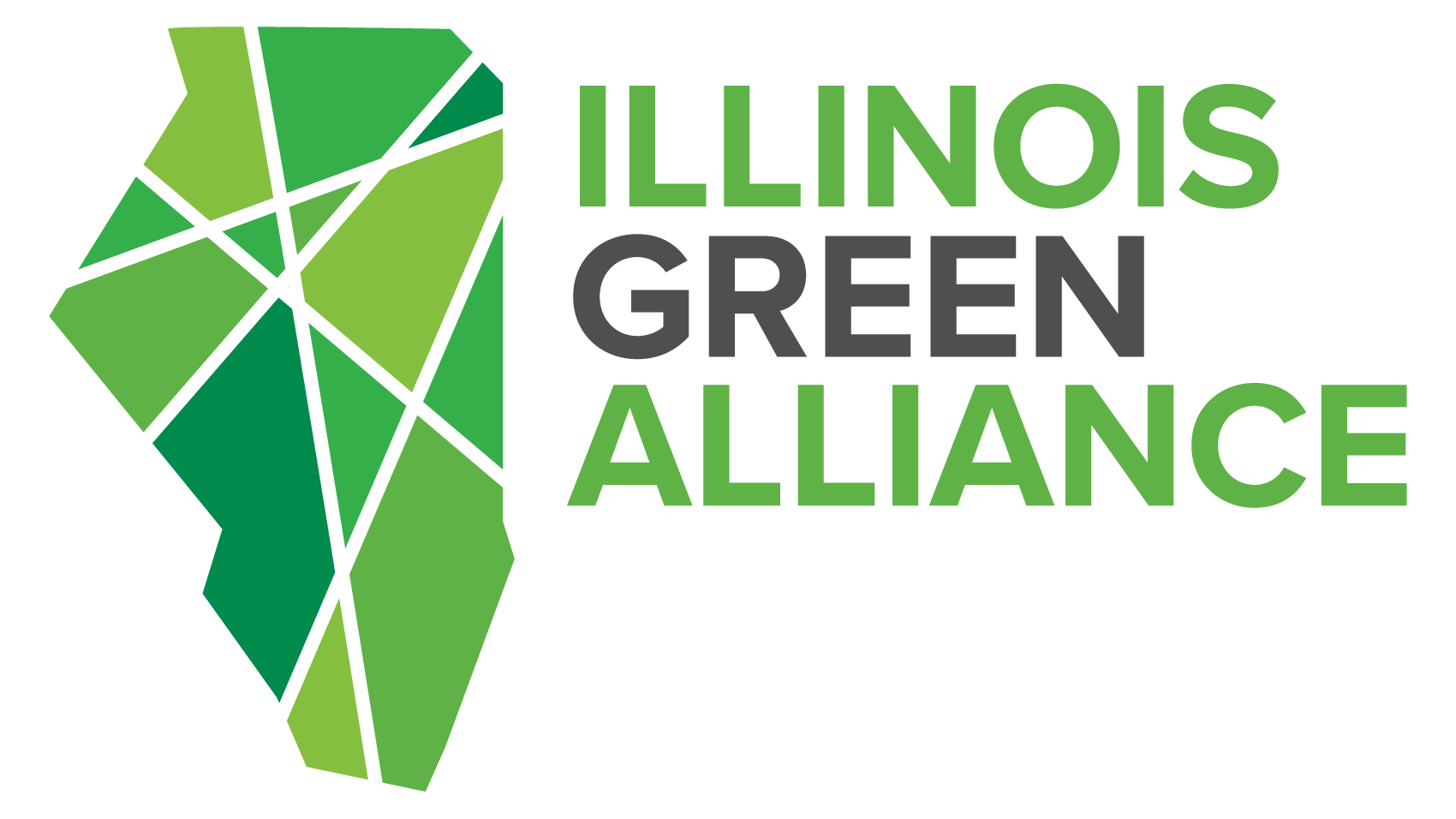
William Beye Elementary School: Understanding Our Impact on the Environment
Students: 397
Staff: 11
Mentor: Brianna Galvan
Project type: Waste Reduction
Location: Oak Park, IL
Grade levels: K-5
William Beye Elementary School's project won the first place award in the elementary school category for the 21-22 cohort of the Illinois Green Schools Project.
Beye students focused on reducing waste in the lunchroom through sorting recycling, composting and food recovery items, as well as reusing lunch containers and utensils when possible. Instructors linked food composting practices to climate action as a tangible way they can positively contribute to reducing global warming. The team has partnered with local community fridge initiatives to help stock the two neighborhood fridges with about 20 pounds of food items a day. In addition, the school's annual PTO-sponsored plant sale added native and pollinator plants this year, and the school garden will expand to include these plants in addition to the current fruit, herb and vegetable plantings.

Inspired by the waste reduction at school, Beye students created a neighborhood clean-up crew.
Students have taken initiative to continue sustainability work outside of school, such as the Cuyler Clean-up Crew, a group of Beye students who have organized a bi-weekly block clean-up as a way to care for their immediate environment and inspire neighbors to get involved.
The school held a culminating Earth Day/Month all-school assembly in early May to celebrate all the elements of the project. Additionally, project mentor Brianna Galvan organized a panel of green professionals to share their career experiences with students to teach them about environmentally focused career paths.
Student leaders are working to develop a school-wide “green” pledge, connected to the lunchroom waste reduction work, to share with the entire school community. Each student will then receive a reusable snack pack to support their individual waste reduction. In the long term, the school wants to have completely “waste-free” lunch periods where all items can be recycled or composted and disposable plastic packaging would be eliminated and replaced with reusable storage items.
“Students feel like they are being a part of the solution, which is empowering and provides opportunity for the development of leadership skills and instills hope.”
Lauren MacGregor
